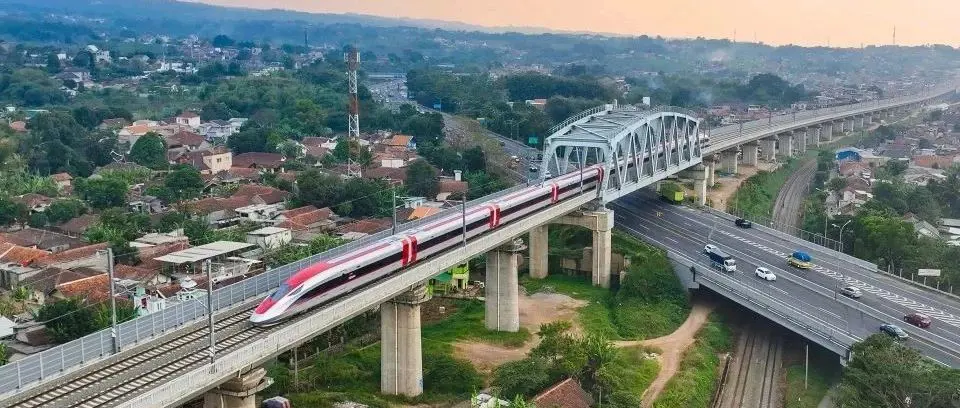Extraordinary! Two consecutive first visits to China!

From [date] to [date], at the invitation of President Xi Jinping, Indonesian President-elect Prabowo Subianto paid a state visit to China. Just this [month], Prabowo had visited China as the president-elect. Both as the president-elect and the formal president, Prabowo chose China as his first visit destination, a rare "double first visit" in Indonesia's diplomatic history.
Today, we will discuss with Jiuwanli the considerations behind Prabowo's two consecutive visits to China as the first foreign destination.
On the afternoon of the [specific date], President Xi Jinping held talks with Indonesian President Joko Widodo, who was on a state visit to China, at the Great Hall of the People in Beijing.
Consideration One: Riding the Fast Train of China's Economy. During the election campaign, Prabowo made economic propositions a key focus for garnering votes, presenting a hopeful vision of the future: rapid economic development, energy and water security, self-sufficiency in food... To fulfill his campaign promises, once in office, he must quickly implement bold reforms in the economic sector. And China is undoubtedly his first choice. Currently, China is Indonesia's largest trading partner and the second-largest source of foreign investment. Prabowo looks forward to strengthening cooperation with China in areas such as infrastructure, industrialization, food security, and energy transition, leveraging China's strength as a "construction powerhouse" to address the construction and financing challenges of the massive sea dike project. It is evident that Prabowo is eager to excel in the economic arena, aiming for a "good start" in his administration. The golden brand of China-Indonesia cooperation under the Belt and Road Initiative—the Jakarta-Bandung High-Speed Railway.
Consideration Two: Properly Manage Disputes in the South China Sea. The South China Sea is an unavoidable question for both China and Indonesia. To some extent, Indonesia is the country among the South China Sea nations with the least disagreements with China, and both sides should have greater common ground in coordinating the resolution of South China Sea issues. Currently, there are no direct territorial disputes between the two countries in the South China Sea, only overlapping in the delimitation of exclusive economic zones. Although there are certain disagreements over maritime rights and interests in the region, the professional and standardized operations of both countries' maritime police personnel ensure that the situation is manageable. Looking back at history, the Joko administration has always managed the South China Sea disagreements between the two countries in a good manner, preventing them from affecting the main theme of bilateral friendly relations. Therefore, Prabowo's first visit to China is also aimed at addressing the unavoidable question of the South China Sea.
Consideration Three: Enhancing Indonesia's International Influence. As a middle power in today's world and a leading country in ASEAN, Indonesia seeks to play a more significant role in international affairs. Prabowo has repeatedly proposed that Indonesia should act as a mediator in geopolitical conflicts such as those in Russia-Ukraine and Palestine-Israel. Throughout Prabowo's political career, he received military training in the United States during his youth and was later frequently sanctioned by the U.S., harboring a deeply complex sentiment towards America. More importantly, the U.S. has continuously stoked the flames and taken biased stances on issues like Russia-Ukraine and Palestine-Israel, which Indonesia does not agree with. Particularly as the country with the largest Muslim population globally, Indonesia is filled with sympathy for the Palestinian people suffering immensely and firmly opposes Israel's indiscriminate slaughter in the Gaza Strip. In contrast, China has consistently stood on the side of fairness and justice in international affairs, resolutely acting as a builder of world peace, a contributor to global development, and a defender of international order. Evidently, Indonesia is more aligned with China's propositions.
Next year marks the anniversary of the establishment of diplomatic relations between China and Indonesia, as well as the anniversary of the Bandung Conference. Under the leadership of the leaders of both countries, it is believed that China and Indonesia will surely build a community with a shared future that holds regional and global influence, continuing the new chapter of joint self-reliance, unity, cooperation, and mutual benefit among developing nations.

